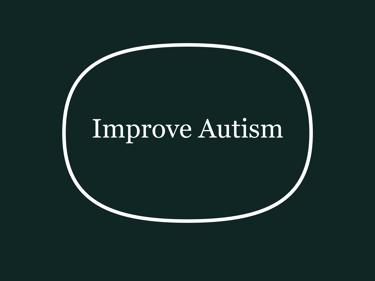Folinic acid improves the score of Autism in the EFFET placebo-controlled randomized trial
Authors:
Renard, E., Leheup, B., Gueant-Rodriguez, R.M., Oussalah, A., Quadros, E.V. and Guéant, J.L.
Study Overview
Design: The EFFET trial (NCT02551380) was a randomized, placebo-controlled, double-blind study conducted at the University Hospital of Nancy, France.
Participants: It involved 19 children with autism spectrum disorder (ASD), aged 3 to 10 years, divided into two groups:
Folinic Acid Group: Received 5 mg of folinic acid (FOLINORAL) twice daily for 12 weeks (approximately 0.48 mg/kg per day).
Placebo Group: Received a placebo for the same duration.
Objective: The trial aimed to assess the efficacy of a lower dose of folinic acid (5 mg twice daily) in improving autism symptoms, building on previous evidence that high-dose folinic acid enhances verbal communication in ASD children.
Primary Finding: Improvement in ADOS Scores
Measurement: The primary outcome was the improvement in the Autism Diagnostic Observation Schedule (ADOS) score, a standardized tool for assessing autism symptoms, including communication and social interaction.
Results:
Folinic Acid Group:
Significant improvement in the global ADOS score at week 12 compared to baseline (P = 0.003).
Social interaction subscore improved significantly (P = 0.004).
Communication subscore also showed significant improvement (P = 0.022).
Mean change in global ADOS score: -2.78 points; social interaction subscore: -1.78 points; communication subscore: -1.2 points.
Placebo Group:
No significant improvements in ADOS scores (P = 0.574 for global ADOS, P = 0.780 for social interaction, P = 0.269 for communication).
Mean change in global ADOS score: -0.4 points; social interaction subscore: +0.2 points; communication subscore: -0.4 points.
Comparison: The folinic acid group exhibited a greater reduction in ADOS scores compared to the placebo group, indicating a more substantial improvement in autism symptoms, particularly in social interaction and communication.
Secondary Outcomes
Social Responsiveness Scale (SRS):
No significant difference between groups (P = 0.10).
Mean change: -8.3 points in the folinic acid group vs. -7.9 points in the placebo group, suggesting no notable treatment effect on this measure.
Safety:
No serious adverse events were reported in either group.
Adverse events (e.g., behavioral issues, viral infections, sleep disorders) were similar between groups, indicating that folinic acid was well-tolerated.
Additional Observations
Serum Folate Levels: At week 12, the folinic acid group had significantly higher serum folate levels (124.1 nmol/L) compared to the placebo group (31.4 nmol/L, P = 0.04), confirming the treatment’s biological effect.
Folate Receptor Alpha Autoantibodies (FRaAb):
Present in approximately 60% of participants, consistent with prior ASD studies (higher than the ~10% in non-autistic populations).
No association was found between FRaAb presence and treatment response, possibly due to the small sample size.
Comparison to Previous Research
Dose Difference: Unlike a prior U.S. trial using a higher dose (2 mg/kg per day, up to 50 mg daily), this study used a lower dose (0.48 mg/kg per day) and still observed significant improvements.
Context: Conducted in France, a country without mandatory food fortification with folic acid, which may influence baseline folate levels and treatment response compared to fortified regions like the U.S.
Limitations
Sample Size: Only 19 participants, limiting statistical power and generalizability.
Study Scale: A small, single-center trial, necessitating larger studies for confirmation.
Conclusions
Folinic acid at 5 mg twice daily significantly improved ADOS scores (global, social interaction, and communication domains) in children with ASD compared to placebo, suggesting a beneficial effect on core autism symptoms.
The treatment was safe, with no serious adverse effects.
While promising, the small sample size calls for larger, multicenter trials to validate these findings, optimize dosing, and explore the role of FRaAb and folate metabolism further.
This study provides preliminary evidence that a lower dose of folinic acid may be a safe and effective intervention for improving autism symptoms, particularly in communication and social interaction, warranting further investigation.
https://pubmed.ncbi.nlm.nih.gov/32387472/
doi: 10.1016/j.biochi.2020.04.019


